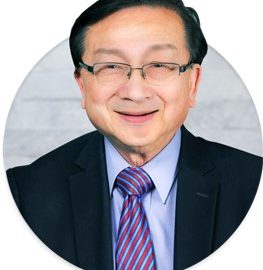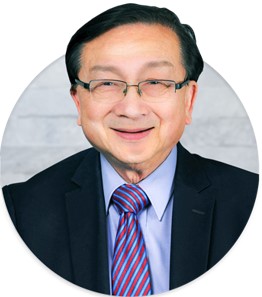
Albany must act now to support healthcare providers serving Asian American communities
Asian Americans make up more than 10% of New York’s population but have historically been underrepresented in healthcare policy discussions that directly impact our communities. We felt this most acutely during the COVID-19 pandemic, when a lack of resources and attention from our government leaders–combined with a spike in anti-Asian harassment and violence–left our community feeling vulnerable at home, at work, and in public.
As the coalition representing more than 1,200 healthcare providers serving more than half a million predominantly Asian-American patients, the Coalition of Asian American Independent Practice Associations (CAIPA) viewed the pandemic as a wake-up call that spurred us to dramatically increase our political and legislative advocacy. We started a PAC that has invested hundreds of thousands of dollars in turning out Asian-American voters in state and local elections, and have supported candidates for office that put our community’s unique healthcare needs first.
CAIPA is now more than just a professional network – we represent a collective voice fighting to preserve community-based healthcare and address the systemic challenges that threaten our most vulnerable populations. Addressing these systemic challenges is only possible with the help of decision-makers in Albany. Critical decisions made this budget cycle will shape the future of healthcare access and quality for Asian American communities across New York State. Two key issues demand immediate attention: the proposed Wrongful Death Act and the critical funding for the Medicaid Quality Incentive Program (QIP).
The Wrongful Death Act poses an existential threat to independent medical providers – particularly those serving Asian American communities. The proposed legislation would dramatically escalate liability costs, creating a ripple effect that could decimate the very healthcare infrastructure our communities depend on.
These increased costs would push many independent doctors out of practice, effectively dismantling our network of culturally competent care and leaving Asian New Yorkers without providers who understand their unique needs. This would mean reduced access to providers who speak our languages, understand our cultural contexts, and provide care beyond mere medical treatment.
In contrast, the Medicaid Quality Incentive Program (QIP) is exactly the type of forward-thinking policy we need. QIP funding rewards high-quality providers like CAIPA’s members for their work serving underserved, diverse populations with high rates of Medicaid enrollment.
For Asian-American New Yorkers, QIP is an investment in healthcare equity. It supports healthcare providers who are committed to reducing health inequities, ensuring that low-income communities receive high-quality, culturally competent care. By providing targeted incentives to high-quality providers, the program addresses critical disparities that have long marginalized minority communities.
We have a clear and urgent request to our elected officials: protect the healthcare providers who are the lifeline of our communities. Oppose the Wrongful Death Act, and fully restore funding for the Medicaid Quality Incentive Program. These are not just policy decisions – they are choices that will determine the health and well-being of hundreds of thousands of New Yorkers.
CAIPA represents a growing political force. We are healthcare professionals, community leaders, and passionate defenders of equitable medical care. Our voice is becoming impossible to ignore. We stand ready to work alongside policymakers to support solutions that protect both patients and providers.
The path forward requires collaboration, nuanced understanding, and a genuine commitment to supporting the diverse communities that make New York extraordinary. Our message is simple: patients deserve providers who serve their communities and share their values. We will continue our fight to make that a reality for every New Yorker.
Dr. George Liu is President and CEO of Coalition of Asian-American IPA.
*sponsored content*


